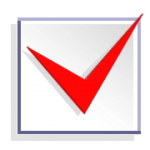According to Gluten-Free Foods in the U.S., 5th Edition by Packaged Facts “Over the five-year period ended in 2014, sales of gluten-free products in traditionally grain-based categories posted a compound annual growth rate of 34%.”
There are more gluten-free products in the grocery store than ever but many of those are packaged foods that may not include healthy ingredients. Other options are gluten-free grains, fruits and vegetables. It’s all so confusing so how do you choose? Follow the tips below and you’ll be well on your way to purchasing and eating a healthier gluten-free diet.
*Start by going through your kitchen and your refrigerator. Read labels and keep what you can and get rid of the rest.
*Carry a list of safe foods and foods to avoid every time you shop. Plan ahead and create a list of food you do want to purchase.
*Load up on fresh fruit and vegetables. Buy in season selections to save money and use them in recipes or eat them whole.
*Stay away from processed food and be prepared to do more cooking at home.
*Check the labels on everything before you purchase with the exception of fresh produce.
*Purchase gluten-free grains including quinoa, rice and rice flour, corn, buckwheat, millet and teff.
*Meat and seafood products without marinades are gluten-free such as beef, chicken, turkey, fish and shellfish.
*Dairy products including yogurt, cottage cheese, cream, milk and butter are a safe choice.
*Miscellaneous foods to round out your diet include honey, oils, hummus, seeds and seed butters and nuts and nut butters.
*Purchase drinks like bottled water, hot cocoa, coffee, tea, fruit juices and carbonated drinks after checking the labels to make sure they are gluten-free.
*Canned and plain frozen vegetables and fruit are a good choice. Check the labels on any items with sauces.
*Purchase separate containers of peanut butter, jams and jellies for yourself to avoid cross contamination.
*If you have a smart phone try looking for a phone app that can scan bar codes of packaged foods. This makes it easier to determine if the item you want to purchase is gluten free.
*Try shopping at ethnic markets and health food stores to give yourself some more options and to vary your diet.
*Purchase bulk items such as gluten-free flour, baking mixes and other staples online in order to save money.
To learn the intricacies of the gluten free diet, it’s a good idea to make an appointment with a Registered Dietitian who has experience working with this challenging diet.
Gretchen Scalpi is a Registered Dietitian, author and Certified Wellcoach® who has celiac disease and know the challenges of eating right with this condition. Gretchen is pleased to announce her new online program “Gluten-free Bootcamp”, designed to help those who need to follow the gluten-free diet. If you are new to the gluten-free lifestyle for medical or health reasons, you’ll want to attend Gretchen’s new free webinar “Five Things You Should Know Before Going Gluten-free”
 Subscribe
Subscribe